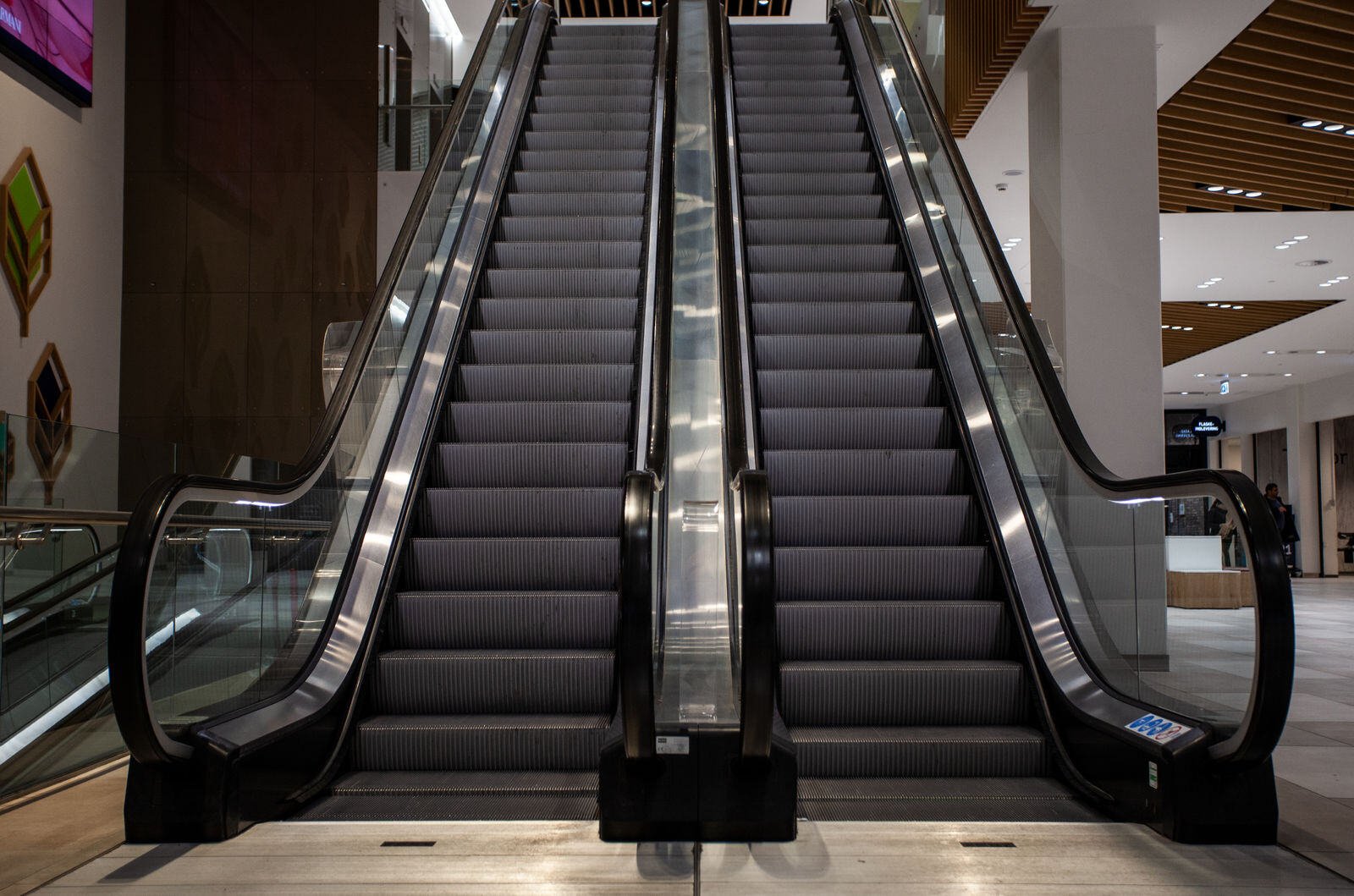Escalators are a convenient part of our daily lives, we use them in shopping malls, transit stations, and office buildings. Despite their common use, it’s important to recognize that escalators come with certain risks if safety guidelines are not followed. Whether you’re using escalators on your own or with children, knowing how to stay safe is key to avoiding accidents.
Our elevating device safety officers answered some frequently asked questions about escalator safety to help you travel with confidence.
Can a closed/stopped escalator be used as a stairway?
No, unless special permission has been granted with additional safety measures implemented, using a stopped escalator as a stairway is not allowed. Doing so poses safety risks due to tripping hazards and the potential danger of the escalator suddenly reactivating while someone is on it, which can lead to falls or injuries. The escalator’s brake system may also be compromised, making it more unstable than a regular staircase. This risk was highlighted in a recent incident we investigated in Vancouver, where a mechanical failure led to a rider pile-up. It’s always better to use proper stairs or elevators when an escalator is out of service.
What should I do if an escalator suddenly stops while I am on it?
If an escalator suddenly stops while you are on it, the first thing to do is hold the handrail to stabilize yourself. Then, maintain your balance and carefully walk in the direction that the escalator was originally moving. This will allow you to exit the escalator safely. If you feel uneasy or are unable to walk off, it’s best to wait for assistance.
What should I do if I drop something on an escalator?
If you drop something on an escalator, first make sure to hold the handrail and maintain your balance. If it is safe and easy to do so you can try to carefully retrieve the item. However, if the object is stuck it’s safer to leave it and ask for assistance to stop the escalator using the emergency stop button.
Are there any scenarios where I can bring a stroller or shopping cart onto an escalator?
No, you should never bring a stroller or shopping cart onto an escalator under any circumstances. Escalators are not designed to accommodate wheeled items and attempting to use one can result in the cart or stroller tipping over, leading to serious injury. Instead, use an elevator or a designated cart conveyor if one is available. Always pay attention to and comply with posted signs like “No Carts” or “No Wheeled Vehicles” to ensure your safety.
What should I do if the escalator I am on starts to free fall?
Escalator free falls (or runaways) are very uncommon. If an escalator you are riding starts to runaway in the down direction, hold onto the handrail and brace yourself for when the escalator comes to a stop. Escalator emergency braking can be sudden, so bracing can help prevent a fall when the brakes apply. If you reach the bottom landing before the escalator stops, step off the escalator and move away from the landing to accommodate other passengers needing to exit the escalator. Remaining calm and acting quickly will help minimize potential injuries in such a situation.
Are shopping carts allowed on inclined moving walks?
No, unless special permission has been granted for specially designed shopping carts with additional safety measures implemented, shopping carts are not permitted on inclined moving walks. Always follow posted signs such as “No Carts” or “No Wheeled Vehicles,” and if you’re uncertain, check with staff before proceeding to ensure that you are using the equipment safely.
Escalators provide a helpful and efficient way to move between floors, but they require responsible use to ensure everyone’s safety. By following these safety tips and remaining cautious, you can avoid common hazards and enjoy a worry-free ride.




